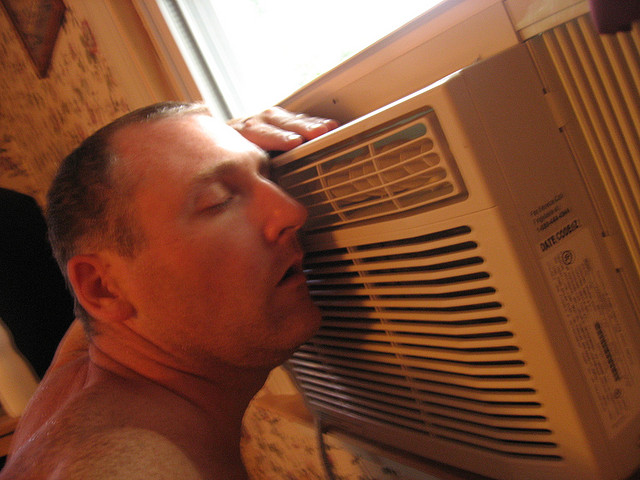
Image Credit: Qfamily, from Flickr.com
It’s getting hot out there. Here in the Southeast, we love our air conditioning. In fact, without air conditioning, far fewer people would live in places like Houston, Hattiesburg, and Sopchoppy. And that’s true for the hot, dry places, too, like Phoenix, El Paso, and Boron.
So if we’re going to have air conditioning in our homes, we want it to work. It should be effective and efficient. It should keep us cool without creating new problems, such as excessive noise, bad indoor air quality, or comfort that varies from room to room.
But sometimes it’s not so effective or efficient. Let’s say you have an existing home and have noticed a sudden change in your air conditioner’s cooling. Or maybe instead you’ve felt a gradual diminution of its ability to keep you comfortable. The possible causes of poor performance can be divided into two groups: heat gain and heat removal. Let’s take a look at them separately.
Reducing heat gain
If you think your air conditioner should be cooling better, don’t assume the problem is with the equipment. It could be your house. Here are some ways that you may be able to reduce the heat gain.
Seal the air leaks. Leaky houses are harder to cool. If you have an older house that’s never been air-sealed, this may be a big part of your heat gain problem, especially if you have leaks from the attic. If you haven’t had a blower door test, get one.
Add insulation. Check the attic first. That’s where the highest temperatures are. If your attic insulation is less than would be required for a new home in your area, add more. But don’t insulate the attic until you’ve sealed the air leaks there!
Spread out the insulation. If the insulation in the attic has been disturbed or wasn’t put in uniformly, you can make a significant reduction in the heat gain just by spreading it out uniformly. Lumpy insulation has a lower average R-value than flat insulation.
Keep the sun out. Direct solar gain can have a big impact on cooling loads. Shade your windows, especially those that have any east-facing or west-facing exposure. It’s best to shade them from outdoors but indoor shading helps, too.
Get more efficient lights and appliances. Electric lights and appliances do great things for us but they also result in waste heat being added to the house. Incandescent lights, for example, convert about 90% of the electricity they use into heat. If you’ve been hanging onto that thirty-year old fridge, replacing it will save you a bundle on your electricity bills, both for refrigeration and for space cooling.
Move appliances to other areas. If you have a room that already overheats (because of too many west-facing windows, for example), that may not be the best place to put the new deep freezer or IT equipment you just bought. The heat that it throws off could may the room unbearable. In addition to convenience, consider heat gain as well in locating appliances.
Check your dryer vent. A clothes dryer vents hot, humid air out of the house. Or at least it’s supposed to. If it’s not connected well — or at all — get that fixed right away. It’s making your air conditioner work harder and may be causing moisture and indoor air quality problems, too.
Some of these things change over time. Insulation gets compressed and moved around. Holes get drilled and cut. Dryer vents fail. Appliances get brought into the home. It’s good practice to keep an eye on the condition of your home and address these issues.
Improving heat removal
Once you’ve done everything you can — or are willing to— do to reduce your home’s heat gain, it’s time to check the state of your heat removal system (more commonly known as an air conditioner). I’m assuming here that your air conditioning equipment is actually functioning properly. If it’s not putting out cold air, call your HVAC service company to schedule a service call. If it’s not putting out any air, well…you probably wouldn’t have made it this far in the article. In either of those cases, get the equipment fixed first. (Blown capacitors are a frequent cause of “no-cool” complaints. That’s definitely not a DIY project.)
So, your air conditioning is cooling and moving air. What can you look for to improve it?
Replace dirty filters. This is one of the first things that an HVAC service person is going to check. Dirty filters reduce air flow, which can reduce the amount of cooling delivered to the home. In fact, they can reduce air flow enough to freeze your air conditioning coil, possibly damaging the compressor. Just change the filter when it’s dirty.
Keep the vents clear. I’ve seen dressers, piles of clothes, and dog beds completely or partially covering supply or return vents in homes. Choking off air flow at the vents increases the pressure in the duct system and reduces air flow. Make sure all supply and return vents in the house can move air easily. And check that the louvers are open in registers. Closing vents in unused rooms probably won’t help anything and could cause problems.
Look for duct air flow problems. The air conditioning equipment itself is only one part of getting the house cool. With central air conditioners, all that cold magic created at the unit has to be distributed to the house. That’s where the ducts come in. Most ducts are bad. Some are really bad. Some are really, really bad. Sometimes the air doesn’t get to where it’s going because ducts get disconnected, especially in crawl spaces and attics. Sometimes the air flow is reduced because the ducts are too restrictive.
Disconnected ducts are easy. Reconnect them. Restrictive ducts are a bit harder. If you have flex ducts, though, it’s a bit easier (assuming you have access to the ducts). Just follow these two rule for flex duct:
- Flex duct should be used only for straight runs.
- Flex duct should be pulled tight.
I would be surprised if you can’t get more air flow from your flex ducts by fixing them according to those two rules.
Seal the duct leaks.Duct leakage wastes a lot of energy. Even after you’ve reconnected any ducts that may have fallen apart, you’re still likely to be losing a lot of conditioned air and pulling in unconditioned air in a typical duct system. This is something homeowners could do themselves but I recommend getting the ducts sealed by a professional who will also check the static pressure in the duct system. It’s possible that sealing the ducts can increase the pressure in the system beyond the recommended value, and that could cause problems. By sealing the ducts, you could reduce the air flow, which could freeze the air conditioner coil, reducing the air flow further and possibly damage the compressor.
Clear the outdoor unit. Another common cause of reduced cooling capacity is restricted air flow at the outdoor unit. People often want to hide the outdoor unit (which houses the compressor and condensing coil) with bushes or structures or ridiculous covers you can buy online. But those outdoor units need space to pull air in (usually through the sides) and expel the heated air out (usually through the top). When you restrict that air flow, you lower the ability of the air conditioner to dump its heat load into the outdoor air. Keep it clear!
Do you need a new air conditioner?
If you don’t have any big problems with the items I listed above but still have trouble cooling your home, it could be that your air conditioner is nearing the end of its life. They tend to lose capacity and efficiency when they’re dying. When you’ve gotten to the point where you know you need a new air conditioner, use these five questions to help you find the right HVAC contractor.
As you can tell from the list of things above, a lot of factors can influence how well your air conditioner performs. The air conditioner itself gets a lot of blame that ought to be placed elsewhere, but whatever the case may be in your home, you probably have room for improvement.
________________________________________________________________________
Allison Bailes of Decatur, Georgia, is a speaker, writer, building science consultant, and the author of the Energy Vanguard Blog. You can follow him on Twitter at @EnergyVanguard.
Weekly Newsletter
Get building science and energy efficiency advice, plus special offers, in your inbox.





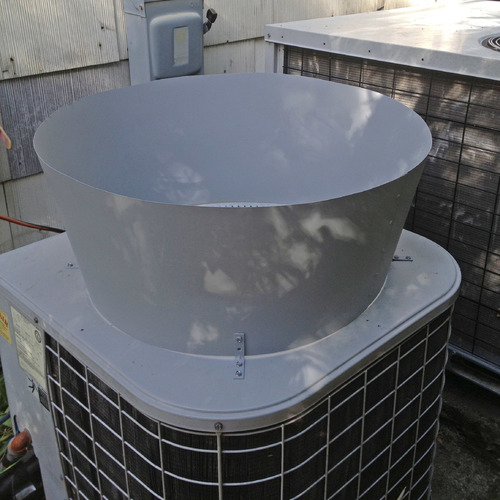
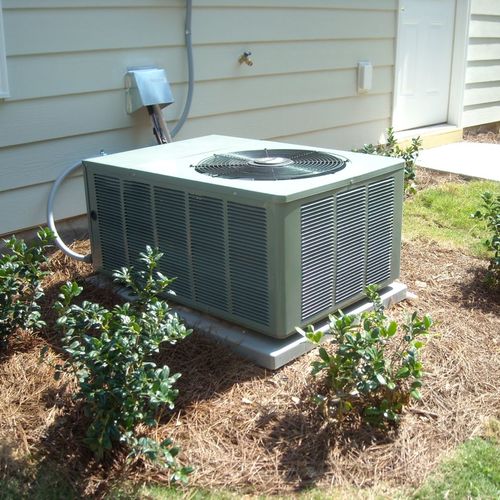
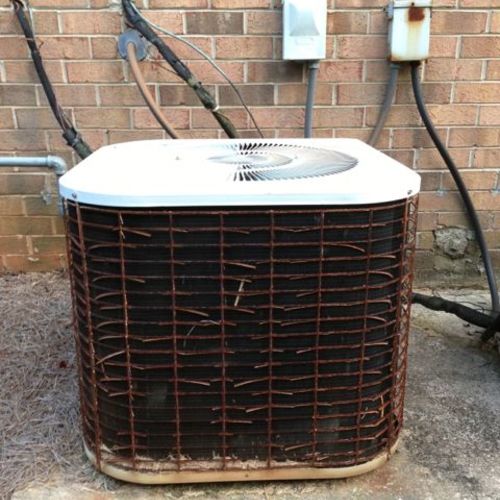
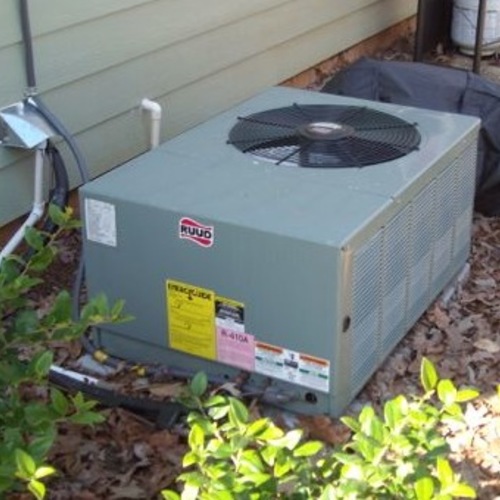






0 Comments
Log in or create an account to post a comment.
Sign up Log in